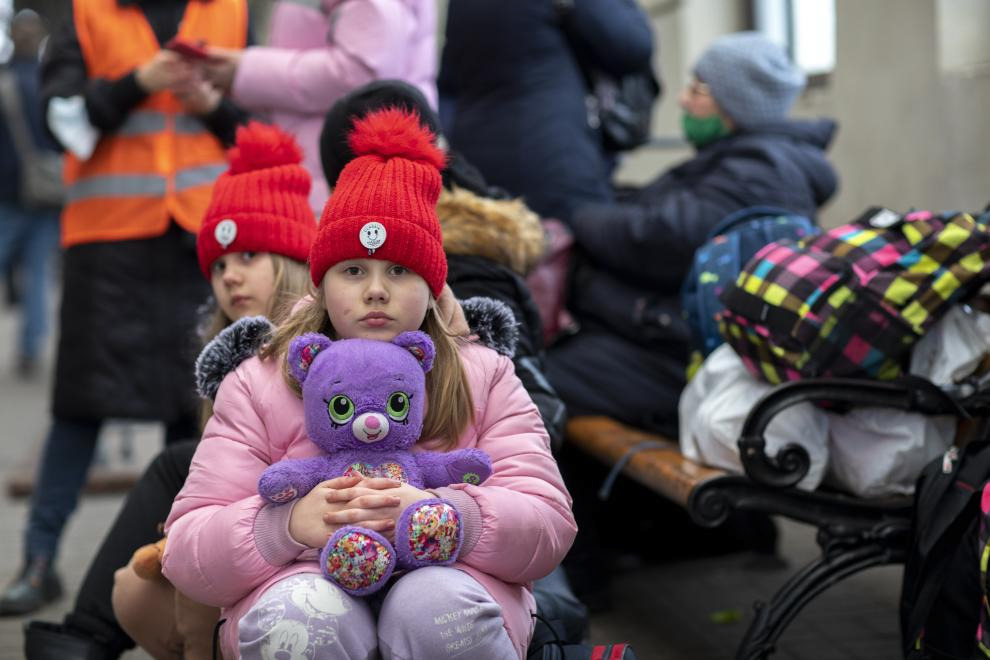Help Children In Ukraine – Abstract from a study of physical and sexual abuse of orphans and disadvantaged children in Ukraine living in Ukrainian orphanages.
Support for children in Ukraine who suffer from war is not only justified – it is necessary for their survival. Special attention must be placed on orphans and other at-risk children who wind up in Ukrainian orphanages. Below is a short abstract from an analysis of the status of children’s lives in orphanages in Ukraine performed by a private expert group. Physical and sexual abuse in orphanages is widespread. Abuse occurs by older children towards smaller ones, by angry staff workers to children with developmental and mental delays, or simply by those “who do not follow the rules”. Please help children in Ukraine through our program of individual child sponsorship.
As an example, the author of the assessment was contacted by a U.S. adoptive parent, who had adopted Alex at age 5 from one of the orphanages in northern Ukraine. The name of the parent is not released to the general reader, however, may be provided to those specifically interested in this particular case, upon request. Below are citations of recent letters received from the parent: “From the beginning, the boy told us of being whipped on his privates (penis) with a house shoe when he wet the bed. He also spoke of being hit by a man, in the night, because he and two others snuck in to get “sweet tea”. These two incidents were shared as soon as we could understand his English. The following are incidents he shared during therapy sessions over the last several months
- His hair was pulled
- he was tickled until he wet himself
- he was thrown in the bed with such force that he hit the back of his head on the railing of the crib and bounced forward hitting the front of his head
- he was kicked in the stomach and the buttocks
- a woman and a man sexually abused him, touching his genitals
- he was hit with a fist on his head and face
Several times, he said these incidents occurred primarily at night but some abuse happened during the day (except for the sexual abuse). His birth sister was adopted by a French family and she told her mom that her best friend had bruises all over and that she was always being hit. I get the impression that certain children were targeted for repeated abuse. I do not feel that the director was aware of what was going on.”… “ I had Alex draw what happened to him as a form of therapy [to later destroy the drawings with the child, a therapeutic way to show the child this will never repeat]. I then took copies of the drawings to his therapist who presented them at a conference in New Mexico. All ten doctors agreed that he absolutely had to have been abused in the ways he said he had been. One of the doctors who practice in New York said her practice is mostly with families who have adopted from countries of the former Soviet Union and she was very familiar with these kinds of drawings representing his abuse.”
Can someone blame such a child for wanting to run away and live on the streets rather than endure this? I have initiated an urgent investigation into this particular case. However, how many cases are revealed like this? How many children are brave to speak out about their sad experiences in orphanages after they are safe away from their orphanages? Obviously, no statistics are available on child abuse, however, most of the people well familiar with the institutional life of children would admit that if not abused, children feel unprotected, especially at night. They don’t know who their friend is and who they should stay away from. This creates elementary human distrust and more sophisticated emotional disturbances that may or may not be cured (if tried).
Another example includes a child who ran away from an institution and sought shelter with a woman who, as the child was told on the street, cares for orphans. One night he just came up to her door and knocked. When asked for reasons for running away, this slightly mentally retarded child explained that he “could not perform oral sexual services along with others”. After 5 years of living in the family of that woman, he learned how to draw and express himself and partially overcame his fears.
We continue to monitor and support orphans and other the most disadvantaged children in Ukraine through a personal sponsorship program.


Comments are closed.